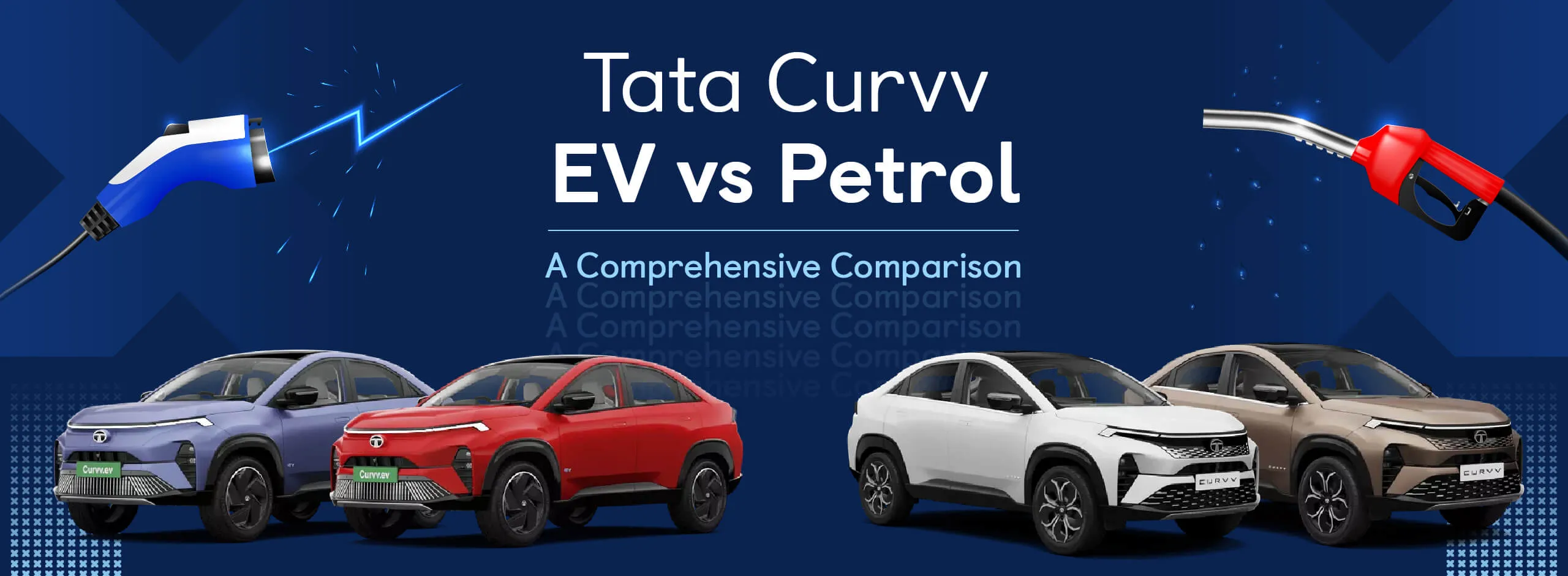Are you tired of watching your hard-earned money disappear at the petrol pump every week? You’re not alone. With petrol prices touching ₹100+ per liter and the Indian government pushing for electric mobility, many car buyers are asking the million-rupee question: Should I buy an electric car or stick with petrol?
Let me break down the real costs for you – no marketing fluff, just honest numbers that’ll help you make the right choice for your wallet and lifestyle.
The Upfront Battle: Purchase Price Reality Check
Electric Cars: The Initial Shock Yes, electric cars cost more upfront. A decent EV like the Tata Nexon EV starts around ₹14.5 lakhs, while its petrol counterpart begins at ₹7.8 lakhs. That’s nearly double the price! But here’s what most people miss – you’re not just buying a car, you’re buying 10+ years of fuel savings.
Petrol Cars: The Familiar Territory. Petrol cars have that comfortable price tag we’re used to. A Maruti Swift costs around ₹6 lakhs, and a Honda City costs around ₹12 lakhs. The pain comes later, I assure you.
Winner: Petrol cars (for now)
Fuel Costs: Where EVs Absolutely Crush Petrol
This is where things get interesting. Let me give you real numbers:
Electric Cars:
- Cost per km: ₹0.80 to ₹1.20
- Monthly fuel bill (1000 km): ₹800-1200
- Annual fuel cost: ₹10,000-15,000
Petrol Cars:
- Cost per km: ₹6-8 (at current petrol prices)
- Monthly fuel bill (1000 km): ₹6,000-8,000
- Annual fuel cost: ₹72,000-96,000
The Reality Check: An average Indian family driving 12,000 km annually saves ₹60,000-80,000 per year on fuel alone with an EV. That’s a foreign vacation or your kid’s school fees!
Winner: Electric cars (by a landslide)
Maintenance: The Hidden Truth
Electric Cars:
- No oil changes (save ₹3,000 annually)
- No spark plugs, air filters, or complex engine parts
- Brake pads last longer due to regenerative braking
- Annual maintenance: ₹8,000-12,000
Petrol Cars:
- Regular oil changes, filter replacements
- Transmission service, clutch wear
- Annual maintenance: ₹15,000-25,000
Personal Experience: My friend bought a Nexon EV two years ago. His annual maintenance bill? ₹9,500. His neighbor with a similar petrol car? ₹22,000.
Winner: Electric cars
Government Incentives: Free Money on the Table
The government is literally paying you to go electric:
Central Government Benefits:
- FAME II subsidy: Up to ₹1.5 lakhs
- Income tax deduction: Up to ₹1.5 lakhs under Section 80EEB
- Lower GST: 5% vs 28% for petrol cars
State Benefits (varies by state):
- Additional subsidies: ₹50,000-2 lakhs
- Free registration in some states
- Exemption from road tax
Total Savings: You could save ₹2-4 lakhs in incentives alone. That’s like getting a car upgrade for free!
Winner: Electric cars
Insurance and Depreciation: The Fine Print
Insurance Costs:
- EVs: 15-20% higher due to expensive battery
- Petrol cars: Standard rates
Depreciation:
- EVs: Currently higher due to rapid technology changes
- Petrol cars: Predictable depreciation curve
Winner: Petrol cars (marginal)
Real-World Cost Analysis: 5-Year Ownership
Let me crunch the numbers for two similar cars:
Tata Nexon EV vs Nexon Petrol (5 years, 60,000 km)
Electric Version:
- Purchase price (after subsidies): ₹12 lakhs
- Fuel costs: ₹50,000
- Maintenance: ₹50,000
- Insurance: ₹4 lakhs
- Total: ₹16.5 lakhs
Petrol Version:
- Purchase price: ₹9 lakhs
- Fuel costs: ₹4.5 lakhs
- Maintenance: ₹1.2 lakhs
- Insurance: ₹3.5 lakhs
- Total: ₹18.2 lakhs
Savings with EV: ₹1.7 lakhs over 5 years
The Charging Reality: What Nobody Tells You
Home Charging:
- Installation cost: ₹20,000-50,000
- Convenience: Charge overnight like your phone
- Cost: Cheapest option
Public Charging:
- Growing network: 5,000+ stations in India
- Fast charging: 30 minutes for 80% charge
- Apps like PlugShare make finding stations easy
Range Anxiety: Most EVs now offer 300+ km range. For city driving, you’ll rarely need to charge outside home.
Environmental Impact: Beyond Just Money
Every liter of petrol burned releases 2.3 kg of CO2. An average car produces 4-5 tons of CO2 annually. EVs produce zero direct emissions. Your children will thank you.

Want To Know More About EV
Charging Your Drive with Electrifying Insights?
The Honest Verdict: Which Should You Choose?
Choose Electric If:
- You drive 500+ km per month
- You have home parking for charging setup
- You primarily drive in the city
- You want to save money long-term
- Environmental impact matters to you
Stick with Petrol If:
- You drive less than 300 km per month
- You frequently take long highway trips (500+ km)
- You don’t have reliable charging options
- You need maximum resale value flexibility
2025 Game Changers
This year is special for EVs:
- Better batteries: 400+ km range becoming standard
- Faster charging: 15-minute rapid charging arriving
- More options: 20+ new EV models launching
- Infrastructure boom: Charging stations doubling
- Price drops: Battery costs falling 10% annually
The Bottom Line
For most Indian families, electric cars are already cheaper to own and operate. The math is simple: higher upfront cost, massive ongoing savings. It’s like buying a house vs paying rent – painful initially, but you’ll thank yourself later.
The tipping point has arrived. Electric isn’t just the future – it’s the present financial smart choice.
My Recommendation: If you’re buying a car in 2025 and it fits your usage pattern, go electric. Your wallet and the planet will thank you.
Ready to make the switch? Check out our complete EV buying guide and find the best electric car for your budget and needs.
Frequently Asked Questions
Q: What if the battery dies? A: Modern EV batteries last 8-10 years with a warranty. Replacement costs are dropping fast.
Q: Are EVs safe in floods? A: EVs are actually safer than petrol cars in floods—no engine to hydrolock.
Q: Can I service an EV anywhere? A: Most authorized service centers now handle EVs. Third-party options are growing.
Q: What about power cuts? A: Most EVs can go 2-3 days without charging. Plus, you can charge at offices or malls.
Have more questions? Drop them in the comments below—I reply to every single one!

